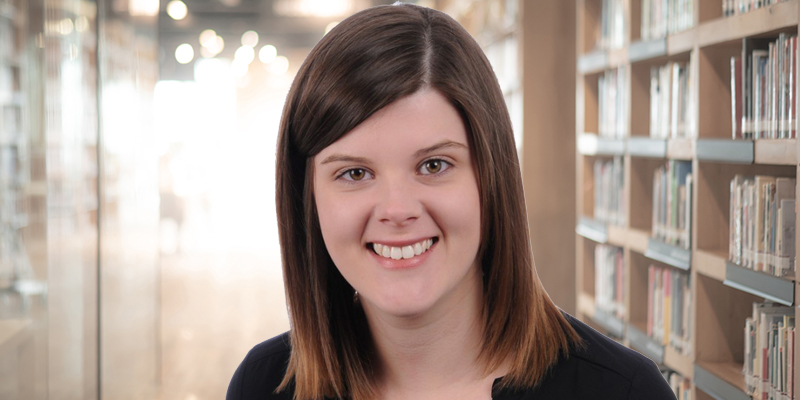University of Law lecturer Hayleigh Southgate discusses her path from corporate practice to teaching, how she brings real-world deal experience into the classroom, the shift to the SQE, and her advice for aspiring lawyers

When Hayleigh Southgate was weighing up what to study at university, law wasn’t her immediate choice. “I really wasn’t sure what I wanted to do,” she remembers. Her A-level law teacher changed that. “She encouraged me to enter a legal essay writing competition sponsored by Blake Lapthorn (now Blake Morgan) and I won! It completely surprised me.” The win led to her meeting a gaggle of solicitors at the awards ceremony, and afterwards her law teacher sat her down and said firmly, “I really think you should go into law.”
That conversation set her career in motion. Southgate began attending open days, eventually choosing to study law at the University of Southampton. Shortly after she graduated, she secured a training contract with Moore Blatch (now Moore Barlow), which meant she needed to qualify fast. She enrolled on the accelerated LPC at The University of Law‘s Guildford campus — a seven-month course that condensed a full academic year into a January-to-July sprint. “It was really intense, but it worked perfectly because it meant I could start my training contract that September.”
Like many trainees, Southgate didn’t end up where she first expected. “At university I was adamant I was going to be a family lawyer — that was my thing,” she says. But after six months in a family law seat, she realised it wasn’t for her. Fortunately, her training principal was understanding. “She said, ‘I’m going to put you in corporate. You’ll either love it or hate it.’ And I absolutely loved it.”
Corporate practice suited her perfectly. “It’s collaborative. Everyone wants to get to the same place: getting the deal done. It’s not adversarial, there isn’t really a winner and a loser.” She thrived on the energy of deal-making and qualified into the corporate department, working on a wide range of matters including private company acquisitions, private-equity investments and partnership restructures. The variety was what kept it exciting. “You’d be drafting everything from investment agreements to articles of association,” she says. “It was so diverse and every deal felt different.” Southgate stayed there for a few years after qualification, before moving to BDB Pitmans (another name change as it is now called Broadfield) to carry on her corporate work for a year as an associate.
But as she advanced in practice, a different interest began to emerge. “I really loved working with the trainees or the paralegals — reviewing their work, giving feedback, helping them develop,” she recalls. When a teaching vacancy appeared at The University of Law, she decided to apply. “I had no formal teaching experience, so I thought, ‘I’ll just roll the dice.’ I didn’t expect to get it!” ULaw’s response was reassuring: “We can teach you how to teach. What we need is your legal experience.”
Southgate then made the leap from law firm to lecture halls, when she began teaching at ULaw Guildford, later relocating when the university opened its new Southampton campus. Returning to the city where she’d once studied felt “like going home — a real sense of nostalgia.” Now she teaches Property Practice and the Mergers & Acquisitions elective, weaving her years of practice into every lesson.
Drawing on her real-world experience, Southgate says, is what brings the material alive. “There are things textbooks can’t capture,” she explains. “Take completion day on a big corporate deal. It’s busy, fun, exciting. Students can learn the checklist of steps, but in class I can tell them what it actually feels like when the deal completes and everyone’s celebrating.” Her students enjoy hearing those first-hand accounts: “It helps them see what the job is really like.”
Southgate’s teaching career has coincided with one of the biggest shifts in legal education: the move from the LPC to the SQE. This year, she taught her final cohort of LPC students. “It’s quite sad in a way,” she says. “End of an era.” She’s embraced the change, though she’s candid about the challenge it presents. “The SQE1 exam in particular is very tough. It’s a huge amount of content, and the multiple-choice format is demanding.”
Unlike the LPC’s written exams, which separated academic law from practical skills, the SQE blends them. “It tests both your black-letter knowledge and your practical understanding,” Southgate explains. “You’re covering everything from contract and tort to business practice and procedure all in one go.”
Her advice for tackling it? “Be organised and consistent. Plan your time, keep practising, and stay calm.” ULaw has an arsenal of tools to support that approach. “We run mock exams so students can experience the format before the real thing,” she says. “And we’ve got a revision app called Synap, which generates SQE-style multiple-choice questions. It’s clever because if you’re struggling with a topic, you can tell it to focus there, and it will adapt to help you improve.” It’s a resource she encourages students to use regularly. “The more you practise, the more confident you’ll feel.”
Beyond exam prep, Southgate is acutely aware that many ULaw students are also applying for training contracts. “It’s another plate they have to spin,” she says. ULaw Southampton tries to make that balancing act easier. “We have a fantastic employability advisor who does one-to-one sessions on CVs, cover letters and interviews,” she explains. “We also run networking events with excellent firms in Southampton — for example, Moore Barlow, Womble Bond Dickinson and Irwin Mitchell — so students can meet recruiters face-to-face.”
These events, she says, are open to anyone considering a legal career, not just ULaw students. “It’s great because it helps people find out what local firms are really like,” she adds. And if students need time off for an assessment day or vacation scheme? “We’re very supportive,” she says. “There are systems in place to help them catch up. We’d never want someone to miss out on an opportunity.”
Seeing students progress from tentative newcomers to confident future lawyers is, for her, the most rewarding part of the job. “When they start in September or January, they’re often nervous. By the end of the course, they’ve grown so much. It’s lovely when they come back to tell us they’ve secured a training contract or qualifying work experience. You feel proud — like you’ve played a small part in that journey.”
Asked for her single piece of advice, Southgate doesn’t hesitate. “Keep an open mind,” she says. “A lot of students find their journey into law takes them somewhere unexpected.” Some go straight from university into a training contract; others spend a few years as paralegals or gain experience through other roles. “There isn’t one right route anymore,” she explains. “With qualifying work experience under the SQE, there are so many options. It’s very much a run-your-own-race kind of field.”
She adds that openness applies to firms and practice areas too. “You might have your heart set on one firm, then you go to a networking event, meet people from another, and think ‘actually, this could be a really good fit’.” Her own career proves the point. “I never imagined I’d end up teaching,” she smiles. “But I have absolutely loved it.”
From deal rooms to lecture theatres, Southgate’s story shows that a law career doesn’t have to follow a straight line. “If you follow what genuinely interests you,” she says, “it will always take you somewhere good.”
And now, in a full-circle turn, Southgate is set to return to corporate practice at Russell-Cooke. Despite the move, she hopes to continue teaching alongside her fee-earning work — a balance she’s keen to maintain because of how much she loves working with students.
Secrets to Success Southampton takes place in-person on Monday, 17 November. The event features a series of careers talks, commercial awareness discussions, and training contract application advice delivered by lawyers from Irwin Mitchell, Moore Barlow and Womble Bond Dickinson, alongside a careers expert from ULaw. APPLY NOW!
About Legal Cheek Careers posts.


